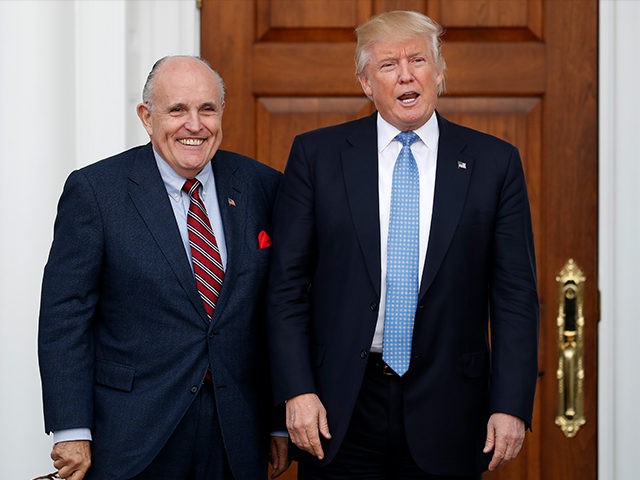President Trump’s use of private citizen Rudy Giuliani to assist U.S. foreign policy is far from unprecedented in American history.
“In fact, presidents since George Washington have turned to individuals without formal government positions to pursue foreign policy interests and objectives,” Eric Felten writes at RealClearInvestigations:
Rudolph Giuliani didn’t hide the fact that he was investigating whether Ukraine interfered in the 2016 U.S. presidential race. Yet most media have treated Giuliani’s efforts as sneaky and suspect because he acted at the personal behest of the president and not as an official representative of the bureaucracy. The New York Times, for example, claimed Giuliani was conducting “a shadow foreign policy campaign.”
In fact, presidents since George Washington have turned to individuals without formal government positions to pursue foreign policy interests and objectives. Private citizens, often acting as special envoys, have helped negotiate issues ranging from trade to war. While critics deride such efforts as “back-door,” “secret,” or “shadow” undertakings, many presidents have found it useful to dispatch people they trust, who can think and operate outside the constraints of official channels in handling delicate matters.
Private representatives were essential in the early days of the republic in part because the federal government was small. During his first year in office, President Washington wrote to one of the Founders most responsible for penning the Constitution, Gouverneur Morris, who was on business in France. The president said he needed to know the “sentiments and intentions of the court of London” toward “a treaty of commerce.” Washington was looking for someone who could act with subtlety: “It appears to me most expedient to have these inquiries made informally, by a private agent.” Washington told Morris he looked forward to “the result of your agency.”
Read the rest here.

COMMENTS
Please let us know if you're having issues with commenting.